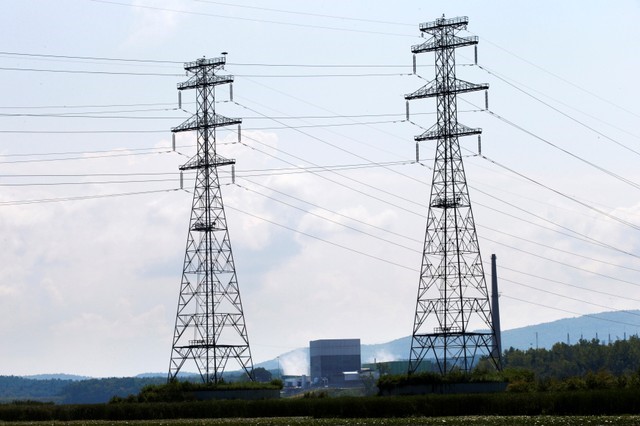
By Angeliki Koutantou
ATHENS (Reuters) -Children were evacuated from a Greek summer camp and residents fled their homes on Tuesday as a wildfire raged uncontrolled on the outskirts of Athens in Greece’s worst heatwave in over 30 years.
More than 300 firefighters with 35 vehicles and 10 aircraft battled the blaze in a densely vegetated area in the suburb of Varympopi, on the lower slopes of Mount Parnitha.
The fire engulfed an unknown number of homes, to the sound of explosions. Equestrian clubs let horses loose to flee the fire.
Prime Minister Kyriakos Mitsotakis visited a fire brigade operations center coordinating efforts to contain the blaze and other fires, in the Peloponnese Peninsula and on the islands of Evia and Kos.
“All available means and resources have been deployed in the fight on multiple fronts,” his office said in a statement. “In these difficult times, the priority is to protect human lives.”
About 80 children had to leave the summer camp and residents were ordered out of their homes in the suburbs of Varympopi, Adames and Thrakomakedones, some 20 km north of central Athens, although some stayed to defend their houses with garden hoses.
“Dozens of homes are being burnt,” Michalis Vrettos, deputy mayor of the Acharnes region, told Open TV as thick plumes of smoke rose over the houses behind him. Four people were taken to hospital with breathing difficulties, local television reported.
In Athens, the power grid operator IPTO said the fire had damaged parts of the grid, posing a major risk to the electricity supply in parts of the metropolitan region.
The fire also disrupted train services and forced authorities to seal off part of a national motorway.
Temperatures of more than 40 Celsius (104 Fahrenheit) and high winds have fanned more than 100 wildfires in different areas of Greece in recent days. On Tuesday, some places recorded temperatures of over 46 Celsius (115 Fahrenheit).
Europe is grappling with a summer of extreme weather, from heavy flooding in the north to the severe heatwaves and fires that have engulfed several areas in the Mediterranean region.
Greece’s neighbor, Turkey, was fighting wildfires near some of its most popular tourist resorts for a seventh consecutive day on Tuesday.
(Reporting by George Georgiopoulos, Karolina Tagaris and Lefteris Papadimas; Editing by Emelia Sithole-Matarise, Alison Williams and Kevin Liffey)












